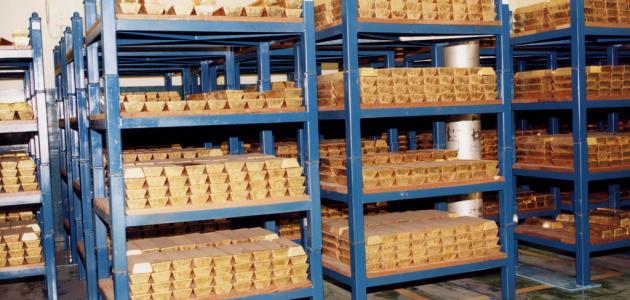Rents economy
The rent economy (in English: Economic Rent) is the difference that appears between what is considered a factor of production, such as capital and land, and what can actually be earned from work. The rent economy is defined as the financial return resulting from a productive resource, such as work and land, and constitutes a financial amount greater than the amount Required to maintain resource production. Another definition of the rentier economy is that it is the additional money that exceeds the expected amount of money, and is a positive difference between the amount actually received and the amount expected to be paid in advance for the work.
Characteristics of the rentier economy
The rentier economy is characterized by a set of characteristics:
- The rentier economy depends on the presence of external financial resources that are not linked to the production process. Which leads to the emergence of rent-seeking behaviors that do not encourage the continuation of local production.
- Rentiers are interested in obtaining their revenues from markets outside countries.
- Rent is usually the main source of revenue for the local economy.
- Rent depends on the economic activity of the population, which is linked to the redistribution and consumption of rent rather than contributing to its production.
Types of rentier economy
External rent
External rent has a number of sources, namely:
- Gas and oil rents: It is the rentier income resulting from the sale of gas and oil. Because there is a clear difference between the cost of obtaining them and their selling price, and this difference does not reflect the nature of the private efforts of companies in extracting them, and this difference is justified by the fact that gas and oil are depleted resources; That is, non-renewable; Therefore, a financial allowance must be paid because its source is not renewed.
- Mineral rent: It is income based on the sale of minerals. It is relatively smaller in size than gas and oil rents, and the difference between them appears in the nature of the operations allocated to extracting each of them. Mineral rents are among the types of rents that emerged as a result of their high prices compared to the cost resulting from their production.
- Rents from strategic transportation lines: It is the income resulting from transport channels and corridors, such as maritime transport channels, gas and oil transport lines across the territories of countries, and transport based on railways and land roads, and passage through these corridors is considered compulsory. Which contributes to its conversion to services specific to the countries in which it is located. Therefore, it is considered part of rentier income.
- Tourism revenue: It is the income that constitutes financial returns to countries in exchange for services related to the tourism sector. Tourism services contribute to providing high rentier income to countries, and tourist facilities also generate high income, exceeding the value of their own effort and investments, and the revenues generated from the tourism sector constitute an important part of the national product of many countries of the world.
- Revenue from external financial transfers: It is the rentier income resulting from external transfers that form part of the important financial flows of countries. The countries receiving these transfers do not make any financial efforts to collect this rentier income.
- Foreign aid revenues: It is the income resulting from countries receiving aid on a regular basis. Whether from other countries or international organizations, this foreign aid constitutes an essential part of the financial budgets of the countries that benefit from it. Therefore, this aid is classified as a type of economic rent. Due to the lack of efforts to obtain them, or they may be considered financial rewards as a result of political or strategic positions.
Internal rent
Internal rent has a number of sources, namely:
Read also:Research work stress- Revenue from services related to state activities: It is the rent resulting from economic intervention in the economic cycle of developing countries. Whether directly through government property or indirectly through legislation and budgets, the government's spending policy is the ultimate determinant of economic activity.
- Proceeds from financial speculation: It is the rent of contemporary economic systems. It appears clearly in financial speculation, and its basic reason is linked to the speculation mentality that is concerned with achieving quick profits, and financial institutions and the financial system contribute to supporting the speculation system. By providing speculators with financial liquidity in exchange for low interest rates, with the unintended or intentional absence of government regulatory legislation, some governments may also seek to establish a type of financial rent. By relying on issuing financial bonds known as treasury bonds, which are associated with very high financial interests; Which contributes to making public debt a source of rentier income, in the absence of any productive efforts, and the owners of these bonds are often foreign and local banks that are keen to market them to their clients.
- Proceeds from real estate speculation: It is the rentier income resulting from real estate speculation. It occurs as a result of an increase in real estate prices and an increase in the value of rents. This type of speculation may result in crises that are fatal to productive investment.
- Service revenue: It is the rent resulting from various economic sectors, and is divided into three sectors: services, industry, and agriculture. The services sector has become an independent sector as a result of economic developments. Especially with regard to trade; Which led to it exceeding the provision of services to both the agricultural and industrial sectors, and rentier income is reduced or non-existent when the relationship between the service or product and the consumer is direct without intermediaries. However, if the relationship is indirect, that is, relying on the presence of intermediaries, this leads to an increase in rentier income, with The intermediaries obtain financial compensation for the price of the product or service.
How to get royalties
Obtaining rent is linked to one of the types of monopoly, such as site monopoly, property monopoly, or other types of monopolies, all of which make the owner impose his conditions on the use of his property within the monopoly. For example, real estate rent constitutes income for the landowner; Therefore, those who work in it are not allowed to benefit from this rent. Except after providing a certain allowance based on an evaluation of the nature of the land.
Read also:Financial ratio analysis








